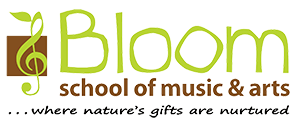Should You Have Piano Lessons at School or at Home?
In one of my previous posts, What is Your Learning Style?, we looked at Howard Gardner’s theory about learning styles, and the various piano teaching methods employed in schools in Singapore. Making the effort to find the right match will help you save a lot of time and money.
I came across this article by Elissa Milne—a rather accomplished career woman who has done more than her fair share of just teaching music—which I think is important to consider before investing in an expensive hobby such as music . 10 Things You Should Do BEFORE Your Child Begins Piano Lessons is a wonderful list to check against to ensure your child has the right head start to learning the piano.
When you believe your child is ready to begin piano lessons, it is time to consider whether to send him to a music school, or have a teacher come over to your home. I have made a table of pros and cons here for easy comparison:
| Checklist | |
| School | Private Teacher |
| Most music schools charges upfront per term (usually every three months) | Most private teachers usually collects payment on the first or last lesson of a month |
| Most music schools follow the public school calendar, meaning there will not be lessons during June and December holidays. There may be up to 11 lessons per term | Most private teachers deliver 4 lessons a month, They may or may not choose to follow the public school calendar to schedule lessons |
| Most schools do not allow makeup classes if you miss lessons, although they may be lenient if it is a one-to-one lesson | A private teacher may use a 5th week as a makeup lesson, or extend the usual lessons to make up the time of missed lessons |
| Most music schools have lessons at fixed timings and limited slots | Parents with time constraints prefer to have lessons conducted at home |
| Offers a motivating and more conducive learning environment | Private teachers may have to contend with distractions around the house during lessons |
| Has more control over the quality of teachers provided | As with other job industries, there tend to be a few black sheep to watch out for |
| Reshuffling of teachers may occur as deem fit by the music school, to ensure lessons remain undisrupted by teachers’ absenteeism or resignations | A private teacher’s sense of ownership and responsibility for their students tend to be stronger, and there is an opportunity to build rapport |
| Most music schools have structured and set curriculum to follow, so it may or may not work for your child, who may find the lesson pace too fast or too slow | Most private teachers are able to customize their lessons to suit your child’s learning style, learning ability and pace of learning. Your child will definitely benefit from the one-to one attention |
| Allows for fun and interactive group classes, with some allowing parents to sit in. Great for socializing and developing your child’s interest in music | It is more effective and efficient for a private teacher to teach one-to-one, although it may be workable to teach up to two children with the same speed of learning |
| If you would like your child to take the exam route, going to a school will ensure the syllabus is on par and lessons can be geared towards attaining results in the ABRSM graded exams | Or if you would like your child to simply enjoy and appreciate the joy and journey of learning the piano without added stress of examinations, a private teacher will be of choice |
If you have decided your child will do best in a school setting, come on down to our school and register your child for our one-to-one piano lessons. Click here for a free assessment first.
Or you can choose to have our teachers go to your home. Contact us for more details.




